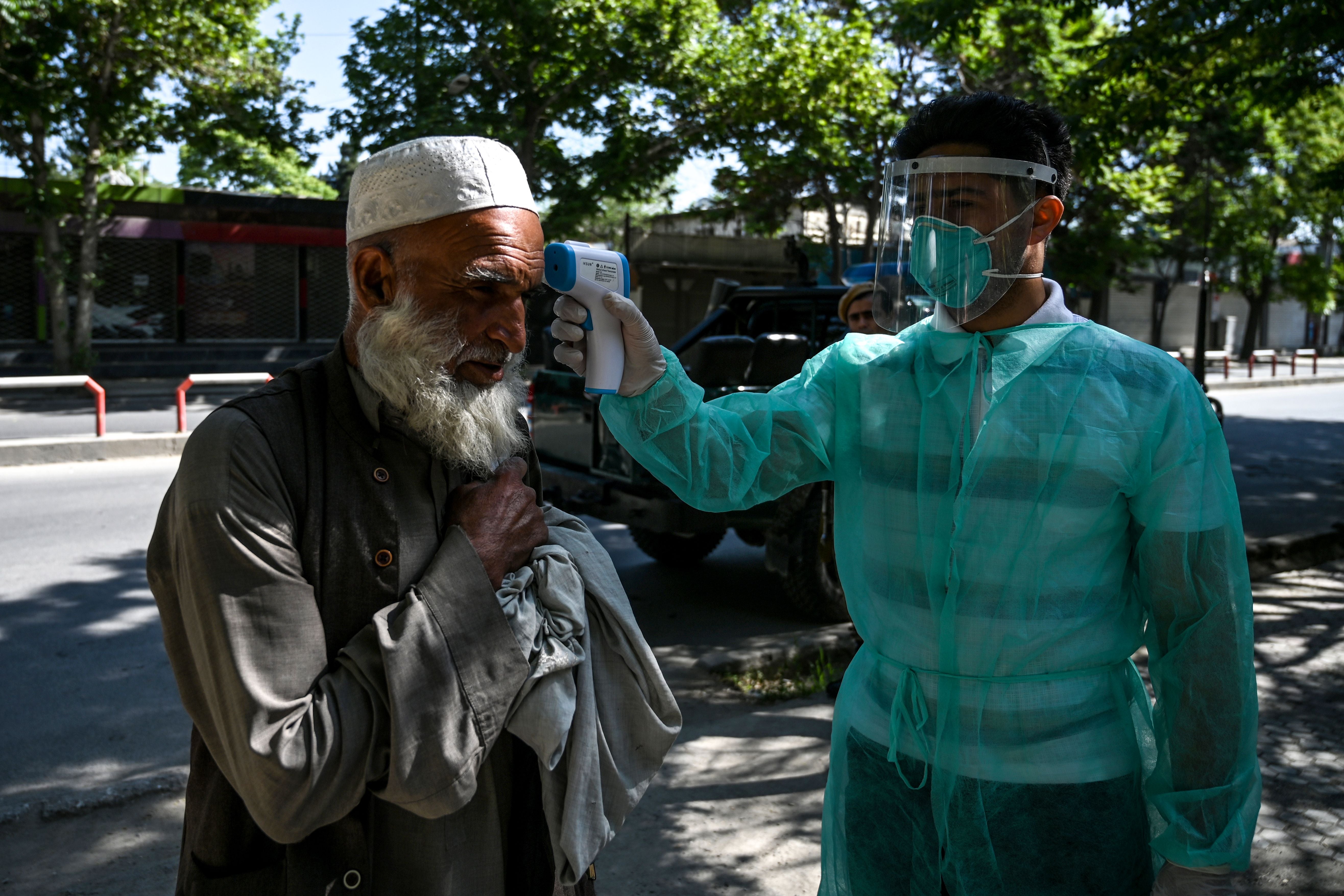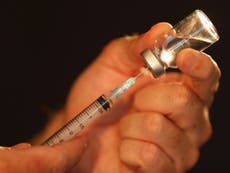Coronavirus: Global vaccine project criticised for asking poorest nations to share ‘burden’ of costs
Low-income nations told to contribute £1.24 to £1.55 per vaccine – despite expectations that funding would be covered by donors

Your support helps us to tell the story
From reproductive rights to climate change to Big Tech, The Independent is on the ground when the story is developing. Whether it's investigating the financials of Elon Musk's pro-Trump PAC or producing our latest documentary, 'The A Word', which shines a light on the American women fighting for reproductive rights, we know how important it is to parse out the facts from the messaging.
At such a critical moment in US history, we need reporters on the ground. Your donation allows us to keep sending journalists to speak to both sides of the story.
The Independent is trusted by Americans across the entire political spectrum. And unlike many other quality news outlets, we choose not to lock Americans out of our reporting and analysis with paywalls. We believe quality journalism should be available to everyone, paid for by those who can afford it.
Your support makes all the difference.The global project to deliver coronavirus vaccines to the world’s poorest people has been criticised for a decision to share costs among lower-income countries.
It had previously been pledged that funding for these nations would be largely provided by donors and development aid.
The Covax Facility project, led by the World Health Organisation among others, was established this year to procure and equitably distribute vaccines between member nations.
The project identified 92 low- and middle-income countries – including South Sudan, Indonesia and the Philippines – that would not have to pay the same up-front costs for doses as the remaining 76 “self-financing” members.
Originally, there was an expectation that these poorer nations – many of which have been crippled by the costs of the pandemic and are now facing the challenge of vaccinating billions of people – could rely on external funding to support their participation in the initiative.
In WHO documents seen by The Independent, assurances were made that these countries would be “funded mainly by official development assistance”, including “private sector and philanthropic donors”.
The Covax Facility is also led by the Gavi Vaccine Alliance and the Coalition for Epidemic Preparedness Innovations.
The Independent understands that Gavi, a public-private global health partnership which aims to increase immunisation in poorer countries, has so far raised $1.7bn (£1.3bn) for the Covax Facility’s lower-income nations, having set an original target of $2bn (£1.5bn). Yet the organisation has now told these countries to contribute costs equivalent to £1.24 to £1.55 per vaccine dose.
The decision to implement this policy was made at a Gavi board meeting held earlier this week. One source briefed on discussions said that Gavi “was really pushing for the co-financing obligations, saying that they can’t go back to donors again” for further funding.
The WHO and Bill and Melinda Gates Foundation are said to have been resistant to the policy, and both called on the board not to implement any cost-sharing requirements for lower-income nations until 2022.
“It does seem like the project is on thin ice at the moment, and I think the 92 countries are receiving very little information so they likely have no idea what’s expected of them,” the source added.
Although the move to introduce co-financing has been criticised, The Independent has been told approval was given in light of the World Bank’s newly announced plans for a $12bn (£9.3bn) initiative that will allow poor countries to purchase vaccines.
It is understood that this funding will help the 92 to cover their new cost-sharing obligations under the Covax Facility.
Gavi has also insisted that “flexibilities” will come into play on a case-by-case basis, until at least the end of 2021, if some countries are struggling financially.
The organisation said this will “make certain that cost-sharing will not prevent or delay the introduction of Covid-19 vaccines in lower-income economies and ensure that these economies do not need to reallocate existing budgets, diverting resources” from other health programmes.
Gavi also maintained that the new cost-sharing element for lower-income countries was always part of initial discussions, and stressed that it has applied to previous vaccination programmes supported by the body.
Still, concern has been raised over how the new financial demands will affect poorer members’ ability to afford doses – even if Gavi’s $2bn funding target is reached.
Global Justice Now, which campaigns on issues of trade, healthcare and justice in the developing world, said the new policy meant “low-income countries were being left between a rock and hard place”.
“During a global health and economic crisis, they are either going to have to divert scarce funds from other public health interventions or be pushed into more debt,” Heidi Chow, a senior policy manager, told The Independent.
“The problem is that these countries still have to pay. And the price is too expensive and should be lowered or dropped. The promise of flexibility until the end of next year is not enough – the economic fallout from the pandemic will be severe and long-term and many lower income countries will need support beyond 2021.”
Ms Chow added that Gavi should be demanding not-for-profit pricing from the pharmaceutical industry, rather than “pushing the burden on those who can least afford it”.
Kate Elder, a vaccines policy adviser at Medecins Sans Frontieres (MSF), said Gavi needed to give greater consideration to the costs they expected the lower-income countries to cover.
“If they’re requiring co-financing, what is an appropriate figure,” she told The Independent. “$1.50 per dose for a government like South Sudan, for example, might be quite expensive.”
She also questioned how much of the World Bank’s $12bn funding would be made available for the actual purchasing of doses. Financial structuring for the initiative still seems to be ongoing, meaning it is likely that a proportion of the overall figure could be set aside for other Covid-related interventions, such as treatments, Ms Elder said.
“Governments can access it and likely use it to pay their co-financing payments, but how much effort does it take for a government to do that, and is it their priority in the vast field of Covid-related challenges now to use this new funding to pay Gavi?” she told The Independent.
Gavi is set to meet the World Bank in October to further discuss how the $12bn initiative can be used to support the Covax Facility.
Covax will draw from a portfolio of vaccine doses, which will be shared among members. It aims to deliver at least two billion shots to participant members by the end of 2021.
In the first phase of the programme, doses will be offered to all member countries to vaccinate frontline workers in health and social care. After that, shots will continue to be delivered as they are produced until all countries are able to vaccinate 20 per cent of their populations.
With high-income countries rushing to place direct orders with vaccine manufacturers, the programme scheme has been welcomed as a solution to vaccine nationalism.


Join our commenting forum
Join thought-provoking conversations, follow other Independent readers and see their replies
Comments